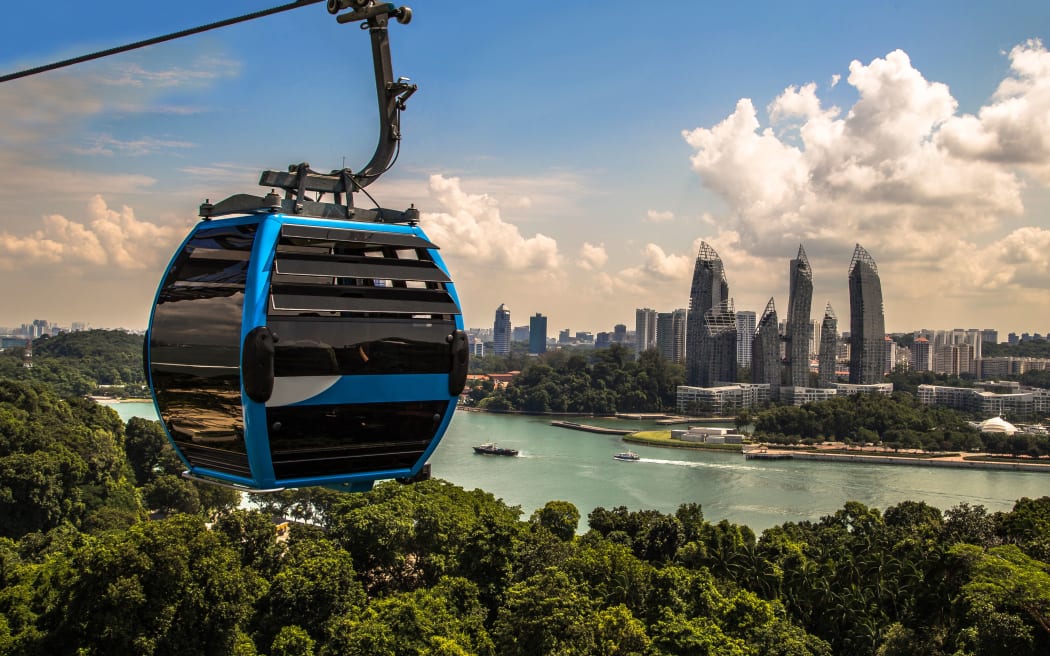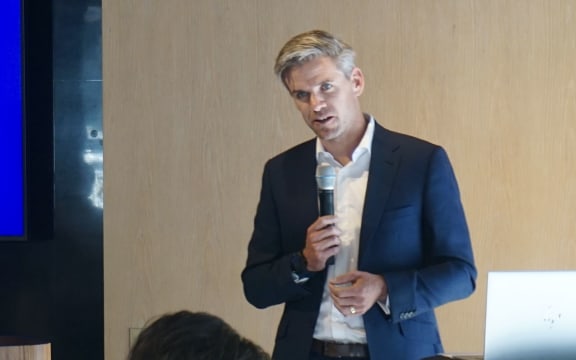By rnz.co.nz and is republished with permission
Urban cable cars could provide cheaper, cleaner and faster mass transport solutions for New Zealand cities, according to a new report commissioned by an aerial lift manufacturer.
Doppelmayr New Zealand chief executive Garreth Hayman told Nine to Noon the analysis by transport planning and engineering specialists Abley identified 20 potential gondola locations nationwide, with Auckland and Wellington its immediate focus.
“You’re up at that higher level, it’s comfortable, it’s fast and it’s on time. It doesn’t get impacted by what’s going on below.”
One of the company’s systems in Sentosa City in Singapore. Photo: Supplied / Doppelmayr New Zealand
Three of the transport links the company intended to pursue would connect the Auckland and Wellington airports with suburbs that do not have strong existing public transport options, he said.
The sites considered in Auckland and Wellington would save passengers up to 29 minutes travel time, compared with existing public transport systems, and had capacity to transport up to 6000 people an hour between main transport links and suburbs.
Garreth Hayman Photo: Supplied / Doppelmayr New Zealand
“We know these solutions work because we have seen them in action in large international cities – where they complement existing transport networks and are incorporated into existing buildings, underground stations, airports and housing developments.”
The report had just received “a warm reception” from the Auckland Chamber of Commerce, he said.
Doppelmayr New Zealand was open to working with government and council planning and transport agencies and was also seeking private/public financing or equity agreements.
Unlike rail-based systems, cable cars could be installed “with a minimum of disruption and in a shorter period”.
“Cost is one of the biggest driving factors, around a third of the cost of light rail, or even rapid bus solutions,” Hayman said.
“There’s a system that’s currently under construction in Paris, due to open in 2025, and that’s costing around $50 million per kilometre. We think that’s a good example of what the costs would be in New Zealand.”









